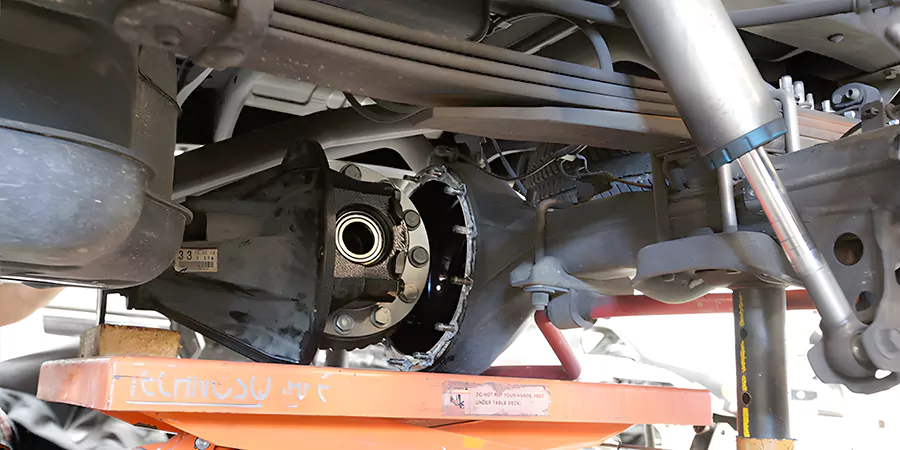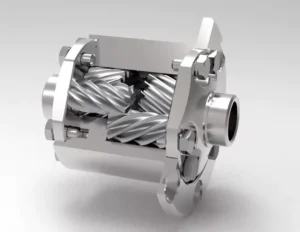Limited-slip differentials (LSDs) are a game-changer for many vehicles, providing enhanced traction and performance, especially when the going gets tough. To keep these differentials working their magic, a limited-slip additive, often called a friction modifier, is used in the gear oil. Let’s dive into what this additive does and why it’s so important.

Reducing Chatter and Noise
One of the main jobs of a limited-slip additive is to cut down on chatter and noise. LSDs can sometimes get noisy during tight turns or under heavy loads due to friction between the clutch plates inside the differential. The additive smooths out this friction, making for a quieter and more comfortable ride. By minimizing these disturbances, it ensures the differential operates more smoothly and quietly, enhancing your overall driving experience.
Enhancing Performance
Limited-slip additives are key to getting the best performance out of your LSD. They tweak the friction characteristics of the gear oil, ensuring that the clutch plates within the LSD engage and disengage effortlessly. This means better performance during cornering and improved traction control. With smoother operation, the differential can distribute torque more effectively between the wheels, giving you superior handling and stability, especially on slippery or uneven surfaces.
Preventing Wear and Tear
Taking care of the differential’s internal components is crucial for keeping your vehicle running smoothly and avoiding costly repairs. Limited-slip additives help reduce wear and tear by keeping the gear oil’s lubrication properties in top shape. The additive forms a protective layer that reduces friction and minimizes direct contact between metal parts. This extra protection extends the life of the differential, preventing premature wear and cutting down on the need for frequent repairs or replacements.
Compatibility with Gear Oil
Most limited-slip additives are designed to work with a wide range of gear oils, making them easy to incorporate into your vehicle’s maintenance routine. This compatibility means you can easily find and use the right additive for your specific differential system. By following the manufacturer’s recommendations, you can ensure your differential gets the lubrication and protection it needs.
Conclusion
Limited-slip additives are essential for keeping your limited-slip differentials running smoothly, performing well, and lasting longer. By reducing chatter and noise, enhancing performance, preventing wear and tear, and maintaining proper functionality, these additives make sure your LSDs provide the traction and control you need in various driving conditions. For those looking to get the most out of their differentials, adding a friction modifier to the maintenance routine is a smart move.



